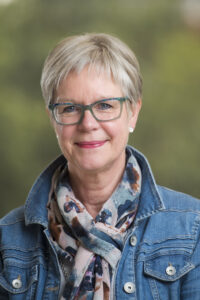
Karin Hammarberg
Dr Karin Hammarberg is a Senior Research Fellow in the School of Public Health and Preventive Medicine at Monash University in Melbourne, Australia. She is a Registered Nurse with 20 years’ experience as clinical co-ordinator of IVF programs. Karin’s main research interests are fertility and preconception health promotion; the psychosocial aspects of infertility and infertility treatment; the health and development of children born as a result of assisted conception; and women’s health.
Don’t presume women with chronic conditions don’t want babies – some do, so ASK them!
Helping women (and men) to be in the best possible health before pregnancy is the new frontier in population health and disease prevention because Healthier Pregnancies lead to Better Lives! My work has largely focused on helping people who seek infertility treatment to become birth parents.
And yet, I have observed that their absolute intention to conceive does not often translate into being well-prepared for pregnancy. In part, this is because the offer and provision of comprehensive preconception education, counselling and care is not commonplace. At the same time, it is not often requested or sought. Neither supply nor demand are robust.
This is not just an IVF issue. Our review of the literature shows that women with non-communicable diseases (NCDs), such as diabetes, epilepsy, rheumatoid arthritis, multiple sclerosis and cystic fibrosis might miss out on preconception care because health professionals don’t ask them whether they want to become pregnant in the foreseeable future. When the patient’s answer is ‘Yes’, they are rarely well-equipped to follow up effectively.
Asking people of reproductive age about their desire for pregnancy opens the door for conversations about what they can do to give their baby the best start in life. For those with no immediate plans for pregnancy, discussions can focus on the importance of reliable contraception as the best bet for avoiding pregnancy. For those who are keen to have a baby in the near future, this is a golden opportunity to not only talk about the importance of being in the best possible shape before trying for a baby but also support positive health behaviour changes.
Because what people want can change over time, the pregnancy question needs to be popped more than once. That’s why the concept of universal preconception counselling and assistance relies on primary care to play a leadership role. After all, that’s where most healthcare encounters take place and ongoing relationships develop.
But if we put all responsibility for preconception care on primary care, women living with chronic conditions can fall through the cracks because most of their healthcare is handled by specialists.
For women living with NCDs, thinking ahead and preparing well for pregnancy is essential. This enables optimal pre-pregnancy disease/condition control, as well as replacing any potentially teratogenic medication (such as one containing valproate) with a safer alternative. It also creates an opportunity for contraceptive choices to delay or avoid pregnancy until it’s wanted, and the prospective parent is healthy enough to be likely to have a safe pregnancy and healthy baby.
The aim of our literature review was to learn about the pre-pregnancy health information and service needs of women with chronic, non-communicable health conditions. And we found that there is plenty of room for improvement!
Our synthesis of the findings from the 15 studies reviewed revealed women with chronic conditions have unmet preconception health information needs. They remain unmet, in part, because many health professionals don’t ask them, just as many patients don’t have a strong enough sense of agency to initiate this reproductive health conversation.
Some specialists who care for women with chronic conditions presume that these patients rule out having children because of their condition. However, like other women, many with NCDs yearn for motherhood and want to know how a pregnancy might be affected by their condition, as well as how their condition might be affected by pregnancy.
Studies also showed that most health professionals don’t feel well equipped to discuss pregnancy or to follow through effectively. They do, nonetheless, want to improve their knowledge and capacity to discuss pregnancy-related issues and provide excellent preconception health advice and care to their patients.
What women want is individualised preconception health information tailored to their condition and circumstances, preferably from their chronic condition specialist. In addition, we discovered they also want to learn from the experiences of women with similar chronic conditions who have had children.
Studies show that women want discussions about preconception health to start early (e.g., in puberty) and then revisited occasionally because their views and desires about pregnancy can change over time. It was also evident across many studies that women want pregnancy-related conversations to be initiated by their healthcare providers. They think this encourages more open, trusting discussions.
The take-home message from our review is that although pregnancy may be risky for women with chronic conditions, some may still want to be mothers. They don’t want practitioners to simply presume that women with complex conditions don’t want children. Instead, they want their healthcare providers to offer holistic, non-judgemental, multidisciplinary pre-pregnancy information, counselling, and care to increase the likelihood of healthier pregnancies and better lives for themselves, their babies, and their families.
To achieve this, we need training and educational resources to improve healthcare providers’ capacity to discuss pregnancy plans with women. We need a holistic approach to discussing the potential risks of pregnancy considering the woman’s unique circumstances. We need multidisciplinary care; and, for women to have access to peer support and peer narratives about preparing for pregnancy.
Based on the findings of our review, the Your Fertility team is developing tools to help specialists ask women of reproductive age about what they want in their reproductive lives. These will be modelled on the resources we already have for primary health providers and will include short videos showing how specialists can initiate compassionate, helpful, pregnancy conversations.